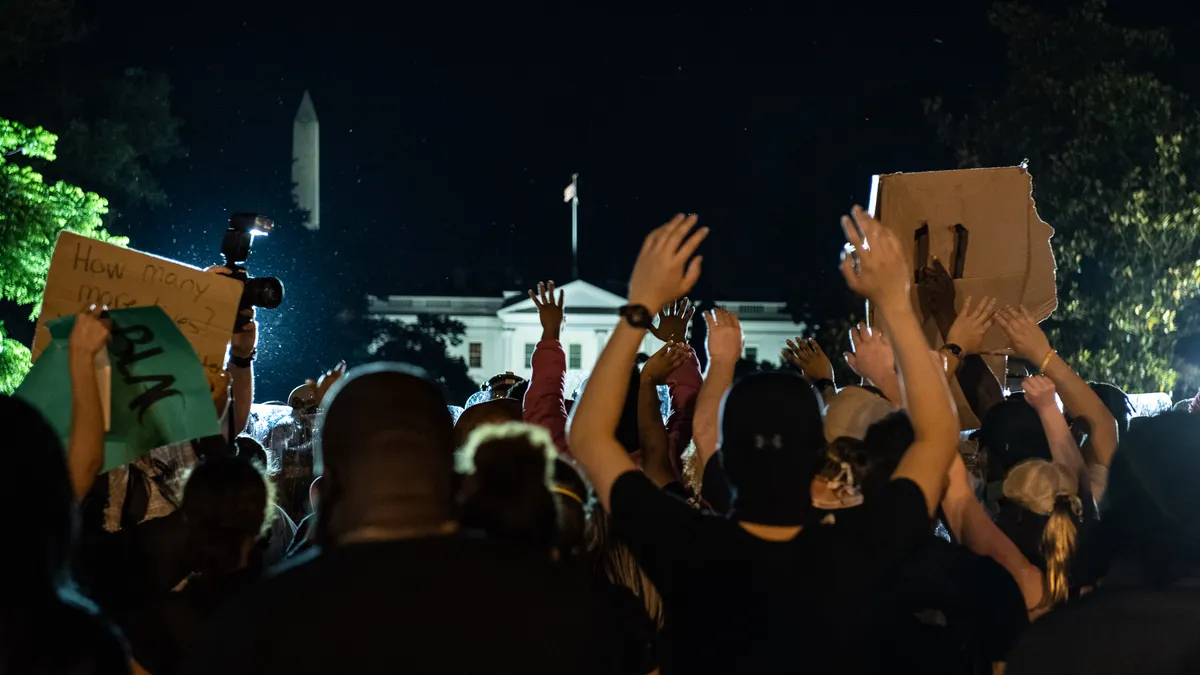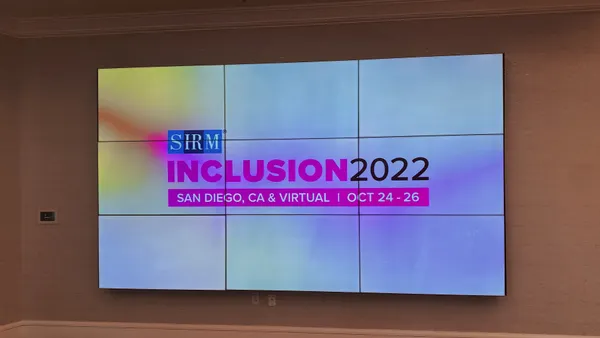Transparency and communication are essential in times of crisis, according to experts.
As protests continue across the country in response to the May 25 killing of George Floyd, an unarmed black man, by recently fired Minneapolis police officer Derek Chauvin, organization leaders need to acknowledge how employees are affected, J. Christopher Hamilton, an attorney and assistant professor at the S.I. Newhouse School of Public Communications at Syracuse University, said.
The black community and allies are "grieving the losses we're seeing right now at the hands of disproportionate use of force by law enforcement, and institutionalized racism that transcends both government and the private sector," Hamilton told HR Dive in an interview. He discussed steps companies can take to quickly support employees.
'Stand on the side of justice'
As many organizations are operating in a telework environment amid the COVID-19 pandemic, a company-wide virtual town hall is the best method for a CEO to "express that they stand on the side of justice," Hamilton said. The meeting will create the right atmosphere and supportive environment, providing a conduit to express concerns, he said.
Leaders should affirm that they "stand behind the organization's anti-discrimination policies, and will continue to operate in accordance with U.S. Equal Employment Opportunity Commission [EEOC] guidelines and regulations," he said.
The Civil Rights Act of 1964 is benchmark legislation that continues to "resonate in America," according to the U.S. Department of Labor. The EEOC enforces Title VII of the act, which makes it illegal for employers to discriminate based on several protected classes, including race and gender. To prevent racial discrimination in the workplace, the agency suggested in a guidance that a strong EEO policy be embraced at the top levels of an organization. EEOC also advised that managers, supervisors and employees be trained on the policy and held accountable for any violations.
Uncover employee needs, concerns
Surveys can be helpful for identifying potentially disruptive issues within an organization, Hamilton said. This method provides an opportunity for organizations that are trying to be "progressive, thoughtful and effective in their management," as well as those trying to create "an environment of inclusivity within the organization," he said.
Research has shown that in times of crisis, companies should continue an emphasis on inclusion. A May 19 McKinsey & Company report found that improvement in diversity, particularly in executive teams, is experienced by companies that place a special emphasis on inclusion. An organization may also need to address necessary improvements in the area of diversity and inclusion.
"If you seriously want to see change, and you want to be progressive, then you do it holistically," or stay silent, Hamilton said. "Don't be disingenuous. All you're going to do with a disingenuous statement is create more consternation within the organization because it's not going to be taken sincerely."
Practice empathy, offer support
Chauvin held his knee on Floyd's neck for "8 minutes and 46 seconds in total," according to the statement of probable cause for charges, obtained by The Washington Post. "Two minutes and 53 seconds of this was after Mr. Floyd was non-responsive." The killing, which a bystander caught on video, had a "profound effect on the black community and those identifying with the community," Hamilton said.
"I'm George Floyd in a ball cap and a tank top headed to the park in the summer to play some ball," Hamilton said. "I feel it in a very personal, intimate way." Floyd's killing and past police-related deaths of black men and women, "reminds me of the fragility of my mortality in the presence of law enforcement," he said.
"If you're really being progressive in your attempt to create a healthy work environment," he said, "talk about situations where there can be help for employees that are grieving through this process." Employee assistance programs are work-based intervention programs that can help employees resolve issues that can hinder work performance.
Research also shows that employers can boost retention by showing employees empathy.
"If you don't acknowledge the emotional and psychological impact on your staff, during a national crisis," Hamilton said, "then you will not be prepared to address the implications that has for your bottom line."













